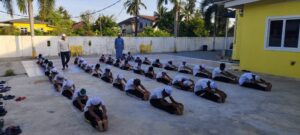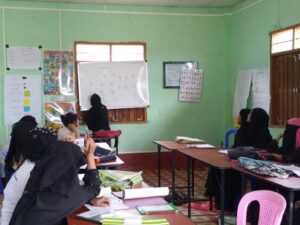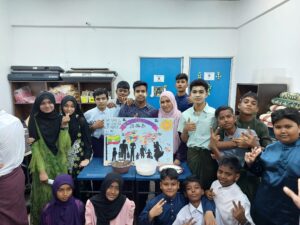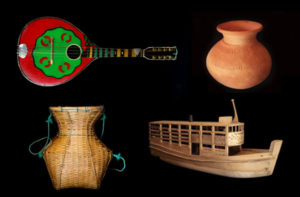In the refugee camps of Cox’s Bazar, Bangladesh, Rohingya children have begun to take part in classroom examinations, marking an important milestone in their education despite the challenges of displacement. These exams, organized by local schools, non-governmental organizations (NGOs), and international agencies like UNICEF, are designed to assess and encourage the academic progress of refugee children who have had their education disrupted by violence, displacement, and the uncertainty of life in the camps.
The examinations are a part of the broader efforts to provide structured, quality education to Rohingya children, many of whom are stateless and face significant barriers to formal schooling. With limited access to education due to the lack of official recognition for refugees in many host countries, educational programs within the camps are often informal, relying on volunteer teachers and non-traditional curricula. Nevertheless, these exams offer an essential way to track students’ learning and help them engage with a system that promotes knowledge, skills, and academic achievement.
Taking exams in a classroom setting—albeit in the challenging environment of a refugee camp—gives the children a sense of normalcy and accomplishment. It reinforces the importance of education and motivates them to continue learning, despite the hardships they face. For many of these children, formal education and the chance to demonstrate their learning through exams is a symbol of hope for a brighter future, offering them the opportunity to rebuild their lives through knowledge and skills.
The exams typically cover basic subjects such as mathematics, language (often in both their mother tongue, Rohingya, and sometimes in Bengali or English), science, and social studies. These subjects help children develop critical thinking and problem-solving skills, which are essential for their long-term growth and success. The exams also allow teachers to identify areas where students may need extra support, enabling a more targeted and personalized approach to teaching.
In addition to traditional academic exams, there is often an emphasis on practical learning assessments that evaluate creativity, critical thinking, and community engagement. These assessments reflect a broader educational philosophy that recognizes the importance of building skills that will help children not only survive but thrive in the future. Teachers and facilitators also assess students’ progress in non-academic areas, such as their ability to work collaboratively, communicate effectively, and adapt to new environments—skills that are vital for overcoming the challenges of displacement.
For the Rohingya children, these examinations represent more than just an academic test. They symbolize their resilience and determination to continue their education, despite the trauma they have experienced. The exams also provide an important step toward reintegrating them into the global educational system, where they can access further opportunities for higher education and eventually contribute to rebuilding their communities.
While challenges remain—such as overcrowded classrooms, limited resources, and the psychological impact of displacement—these classroom examinations are a reminder that, even in the most difficult circumstances, education can offer a lifeline. It empowers children, gives them hope, and helps them imagine a future where they can contribute to society as educated, skilled, and resilient individuals.
The ongoing efforts to provide education, including regular classroom exams, continue to demonstrate the importance of education as a fundamental human right, especially for children living in refugee settings. By prioritizing their education and ensuring that exams are part of their learning journey, organizations and volunteers are helping to create opportunities for the next generation of Rohingya children to break free from the cycle of displacement and build a better future.





